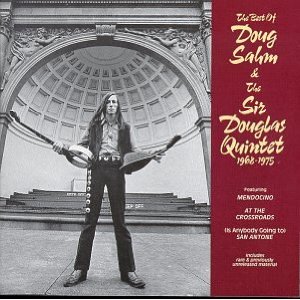A Horseradish
Saturday 5th October 2013 8:48pm [Edited]
8,475 posts
Quote: George Kaplan @ October 5 2013, 9:23 PM BST
The Lee Thompson Ska Orchestra ft. Bitty McLean - Fu Manchu
http://www.youtube.com/watch?v=_VdEHp3jLT0
The Lee Thompson Ska Orchestra feat Bitty Mclean - Bangarang
http://www.youtube.com/watch?v=cjgO8H6C_VY
Excellent. We must, then, have an early favourite from the pen of Lee "Scratch" Perry and a later bit of reggae "coming live" from the Continent. Fortunately, the calendar has kindly helped us on this matter.
Delroy Wilson - Joe Liges
http://www.youtube.com/watch?v=C2CEyFL2wwg
Delroy George Wilson - 5 October 1948 - 6 March 1995 - released his first single in 1961 for producer, Clement "Coxsone" Dodd, at the age of 13. His early years with Coxsone yielded a number of ska hits, the biggest of which, "Joe Liges", was an attack on rival producer and former Dodd employee Prince Buster. His voice matured around the time of ska's transition to rocksteady. This period - in the late 1960s - produced many hits including one of the first rocksteady records, "Dancing Mood" and another with The Wailers.
In 1972, Michael Manley's People's National Party chose Wilson's "Better Must Come" as their election campaign song. Hit after hit followed before he was referenced by The Clash, in "(White Man) In Hammersmith Palais". In 1994, his enduring legacy was recognized by a plaque awarded to him by the Jamaican government. He was posthumously awarded the Order of Distinction in Jamaica in 2013.
Black Uhuru - General Penitentiary
http://www.youtube.com/watch?v=q1HwARlBGSk
Sandra "Puma" Jones - 5 October 1953 - 28 January 1990 - was a singer with the group, Black Uhuru. Jones graduated with a Masters Degree before becoming a social worker in New York City. She studied dance with the Chuck Davis troupe where she took interest in African culture. Then, after becoming disillusioned with city life she declared a need to "discover her roots" and headed for Jamaica, intending to seek employment.
She joined Black Uhuru for the 1979 album, "Showcase", and went on to sing on seven studio albums during the groups most critically acclaimed period, culminating in the Grammy Award for 1983's "Anthem". Jones was keen to exert her opinions on religious and social topics that feature in Black Uhuru's work. This was in a period where reggae musicians were often accused of being trite and dismissive of women in Jamaican society. She also performed with a wide range of notable world music artists including Miriam Makeba.


